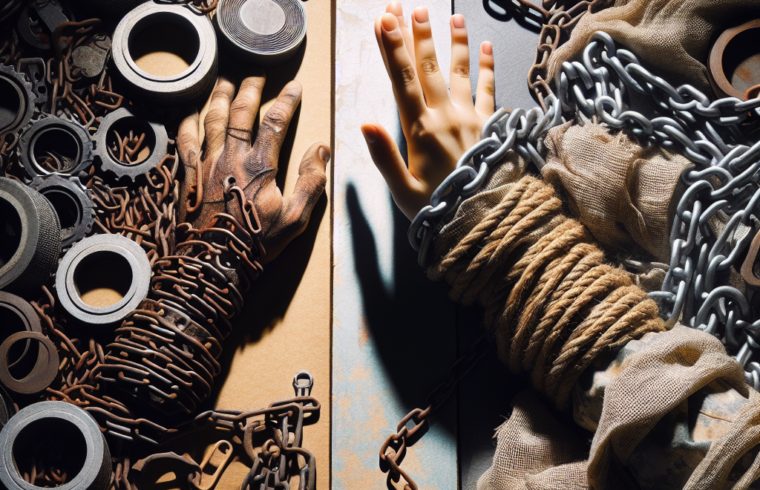==> Thank you for reading this post! Click Here If you are looking for support and Victory over PTSD.
Understanding PTSD
Defining PTSD
Post-Traumatic Stress Disorder (PTSD) is one of those things that you hear about more often these days, and for good reason. It’s not just restricted to soldiers, as many people might think. Anyone who has experienced a traumatic event can find themselves struggling with this condition. Personally, I’ve seen how profound its effects can be, not just on the individual but also on their relationships.
When someone endures trauma, be it a car accident, a natural disaster, or even a sudden loss, the mind struggles to cope. It’s like a computer that freezes when it’s overloaded. The memories can replay over and over, often leading to anxiety and avoidance behaviors. Understanding this is crucial because it helps you realize that the struggles aren’t just in the mind; they can weigh heavily on your relationships too.
So, if you know someone with PTSD, or even if you think you might have it, be aware that it can twist the threads of connection we have with others. It’s like living in a fog while everyone around you is in bright sunshine, a disconnect that can be disheartening for all parties involved.
The Impact on Relationships
Emotional Withdrawal
One of the first things I’ve noticed in relationships impacted by PTSD is this tendency for emotional withdrawal. It’s like suddenly, the person you love decides to pull up a wall and stay behind it. This withdrawal often comes from a place of fear; they don’t want to be a burden or risk dragging you down with their issues.
But here’s the kicker: this emotional distance can leave partners feeling isolated and rejected. I’ve seen it happen firsthand: two people living under the same roof yet feeling like strangers. The hurt grows silently, and before long, you risk losing the very connection that once felt unbreakable.
Understanding this dynamic is vital. It’s not a reflection of love; they care deeply but are caught in their struggle. Knowing how to communicate during these times is a skill worth developing, something that could bridge the gap rather than widen it.
Building Support Systems
Creating an Open Dialogue
Let’s face it: Communication is key. Building a support system starts with creating an environment where honest dialogue can happen without fear of judgment. I remember getting it wrong once by thinking I knew what my partner needed. Spoiler: I didn’t. What’s crucial is asking, “How can I help?” instead of assuming.
It took time, but fostering that open dialogue led to a breakthrough. We were able to share feelings of frustration, fear, and sometimes even relief, knowing we were on this journey together. It’s about being that supportive partner who doesn’t just listen but engages compassionately.
And remember, it’s not just about talking; it’s about being there in silence too. Sometimes, sharing a comfortable silence can be equally empowering. You don’t always have to have the answers; just being present can mean the world.
Self-Care for Partners
Recognizing Your Own Needs
When you’re in a relationship with someone struggling with PTSD, it’s easy to lose yourself in the process. Trust me, I’ve been there! You start to prioritize their needs above yours, believing that if you just give a little more, it’ll somehow make things better. But let me tell you, ignoring your own needs can lead to burnout.
Get Support and Help with Recovery! Visit us for more Information and Support
I learned the hard way that self-care isn’t selfish; it’s essential. Taking time to engage in activities that make you happy, talking with friends, or even seeking your own therapy can rejuvenate your spirit. Nobody can pour from an empty cup, right?
So, don’t shy away from putting your well-being on the agenda. It sets a healthy example for your partner, too. By caring for yourself, you show that it’s okay to prioritize health, which is a reminder that can be invaluable in relationships impacted by PTSD.
Professional Help and Resources
Finding the Right Support
Lastly, let’s chat about professional help. I can’t stress enough how crucial it is to tap into mental health resources. Therapy can seem intimidating, but it’s a goldmine for learning coping strategies. Finding a therapist who specializes in trauma can pave the way for healing.
And it’s not just about the person suffering; couples therapy can aid both partners. It provides a safe space to express feelings, intentions, and sometimes even grievances in a productive manner. Addressing these challenges together helps solidify the bond instead of fraying it.
Also, don’t overlook local or online support groups. Connecting with others who truly understand can make navigating this journey a little less lonely. We’re all human, and sharing stories can foster understanding and resilience.
FAQs
1. What is PTSD?
PTSD is a mental health condition triggered by experiencing or witnessing a traumatic event. It involves symptoms such as flashbacks, nightmares, and severe anxiety, affecting a person’s daily life and relationships.
2. How does PTSD affect relationships?
PTSD can lead to emotional withdrawal, communication breakdown, and increased stress in relationships. Partners may feel isolated, confused, and helpless due to the symptoms displayed by the individual with PTSD.
3. What can I do to support a partner with PTSD?
Creating a safe space for open dialogue is essential. Listen actively, show empathy, and encourage them to seek professional help while ensuring that you also practice self-care.
4. Should I seek help for myself if I’m supporting someone with PTSD?
Yes! It’s crucial to prioritize your well-being. Engaging in your own therapy or support networks can provide you with the tools to manage your feelings and pressures effectively.
5. Are there specific therapies recommended for PTSD?
Common treatments include Cognitive-Behavioral Therapy (CBT), Eye Movement Desensitization and Reprocessing (EMDR), and exposure therapy. Consulting a mental health professional can help find the most suitable approach for your unique situation.













